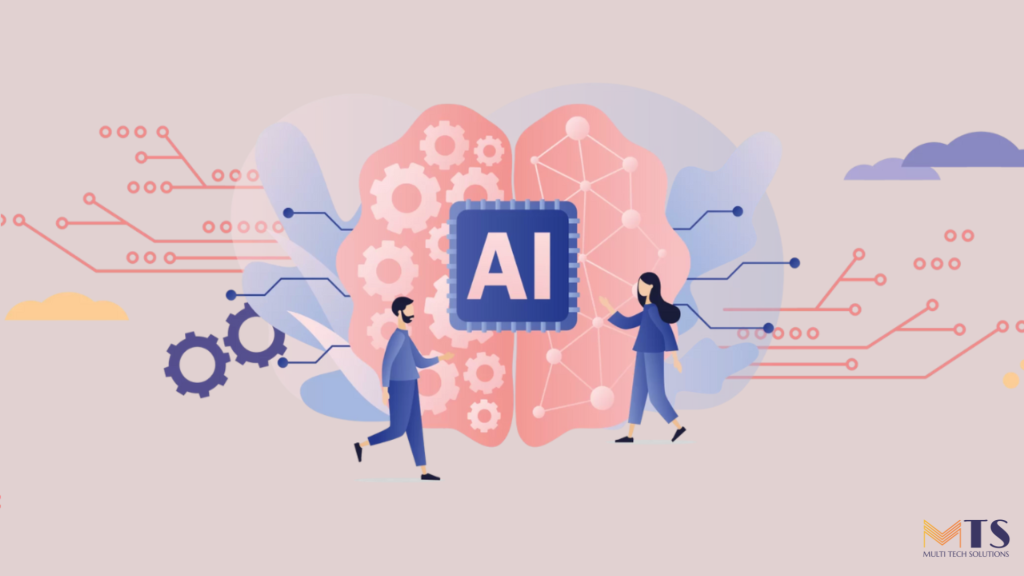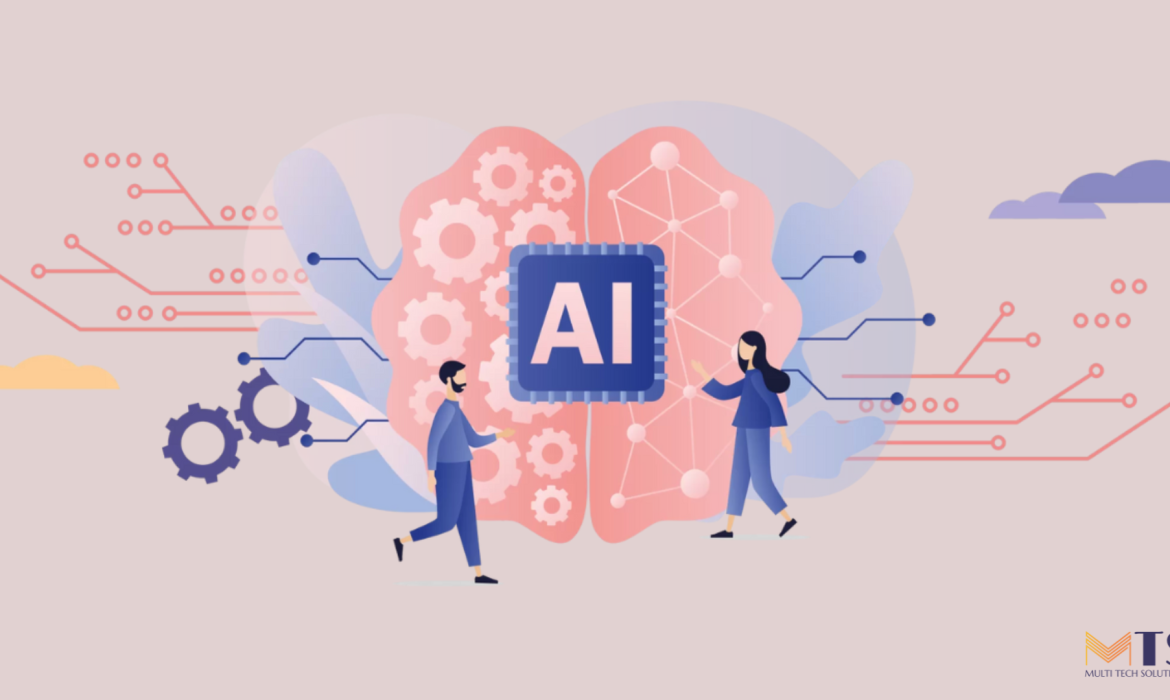
In today’s rapidly evolving digital landscape, businesses are constantly seeking innovative ways to cater to their customer’s ever-changing needs. One powerful tool that has emerged to revolutionize customer engagement is AI-powered personalization. Leveraging the capabilities of artificial intelligence, companies can create tailored experiences that not only delight users but also drive substantial business results. In this article, we’ll delve into the world of AI-powered personalization, exploring its profound impact on user experience and customer satisfaction.
Understanding AI-Powered Personalization: A Paradigm Shift in Customer Experience
In the digital age, consumers expect personalized interactions that resonate with their unique preferences. AI-powered personalization involves the use of advanced algorithms and data analytics to curate customized experiences for individual users. This approach replaces the traditional one-size-fits-all strategy with a more targeted and relevant customer engagement model. Key features of AI-powered personalization include:
1. Data Gathering and Analysis: AI systems collect and analyze vast amounts of user data, including browsing history, purchase behavior, and demographic information. This data forms the foundation for creating personalized experiences that cater to individual preferences and needs.
2. Real-Time Adaptation: These systems adapt in real-time, allowing businesses to deliver personalized content and recommendations on the fly. For instance, an e-commerce website can dynamically update product recommendations as the user navigates through different site sections.
3. Predictive Analytics: One of the most exciting aspects of AI-powered personalization is its ability to predict user behavior and preferences. By analyzing historical data and patterns, AI algorithms can proactively tailor experiences, such as suggesting relevant products before the user realizes they need them.
Enhancing User Experience through AI-Powered Personalization
The integration of AI-powered personalization can significantly elevate the user experience across various touchpoints:
1. Tailored Product Recommendations: AI algorithms analyze user preferences and past behaviors to suggest products or services that align with their interests, increasing the likelihood of conversion. This personalized approach makes shopping more convenient and enhances the user’s perception of the brand’s understanding of their needs.
2. Dynamic Website Content: Websites can dynamically adjust their content, layout, and navigation based on the user’s preferences, creating a seamless and engaging browsing experience. For instance, a news website can showcase articles that are relevant to the user’s previously read topics, leading to longer session durations and increased engagement.
3. Hyper-Personalized Marketing Campaigns: AI enables the creation of hyper-targeted marketing campaigns that resonate with individual customers, leading to higher engagement and conversion rates. By delivering content that speaks directly to the recipient’s interests, businesses can cut through the noise of generic advertisements and establish a deeper connection.
4. Effortless Customer Support: AI-driven chatbots provide instant and relevant support to users, addressing their queries and concerns in real time. These chatbots can understand natural language and provide accurate solutions, enhancing the customer support experience without the need for human intervention.
Driving Remarkable Business Results through AI-Powered Personalization
The implementation of AI-powered personalization strategies can yield substantial business outcomes:
1. Increased Conversion Rates: Personalized experiences foster a stronger connection between users and brands, leading to higher conversion rates and sales. When customers feel that a brand understands their preferences, they are more likely to make a purchase.
2. Enhanced Customer Loyalty: Tailored interactions build trust and loyalty, encouraging customers to return for future purchases and engagements. Repeat business and brand advocacy become natural outcomes of consistently personalized experiences.
3. Optimized Marketing Spending: AI-driven targeting ensures that marketing resources are allocated to the most promising segments, maximizing the return on investment. By focusing efforts on the most receptive audiences, businesses can avoid wastage and achieve better results with fewer resources.
4. Reduced Cart Abandonment: Personalized shopping experiences address pain points and objections, reducing cart abandonment rates and boosting e-commerce success. For example, sending personalized cart abandonment emails with product recommendations can entice users to complete their purchases.
AI-Powered Personalization: Best Practices for Implementation
To harness the full potential of AI-powered personalization, businesses should consider the following best practices:
1. Data Privacy and Transparency: Prioritize user data privacy and communicate transparently about data usage and personalization methods. Establishing trust with users is essential for the success of personalized strategies.
2. Continuous Learning and Adaptation: AI algorithms should continuously learn from user interactions and adapt to evolving preferences. Regular updates to the algorithms ensure that recommendations and experiences remain relevant and up-to-date.
3. Segmentation and Targeting: Define precise customer segments to ensure that personalization efforts are aligned with distinct user profiles. Granular segmentation allows for more accurate customization and higher user satisfaction.
4. Multichannel Consistency: Deliver a consistent personalized experience across various channels, including websites, mobile apps, and social media. Consistency in messaging and customization reinforces the brand’s identity and enhances user recognition.
The Future of Customer Experience: AI-Powered Personalization
As AI technology continues to advance, the possibilities for personalized customer experiences are boundless:
1. Hyper-Personalization at Scale: AI can enable businesses to provide hyper-personalized experiences to millions of users simultaneously. This level of customization will redefine how brands engage with their audiences, setting new standards for user expectations.
2. Voice and Visual Recognition: AI-driven voice and visual recognition will allow for even more intuitive and personalized interactions. Users could interact with devices using natural language and gestures, creating seamless and frictionless experiences.
3. Predictive Customer Service: AI could predict customer issues before they arise, providing proactive support and enhancing customer satisfaction. Businesses can address potential concerns preemptively, leaving customers impressed by the brand’s attentiveness.
In conclusion, AI-powered personalization represents a paradigm shift in the way businesses engage with their customers. By tailoring experiences to individual preferences and needs, companies can create meaningful connections, drive impressive results, and shape the future of customer experience.


